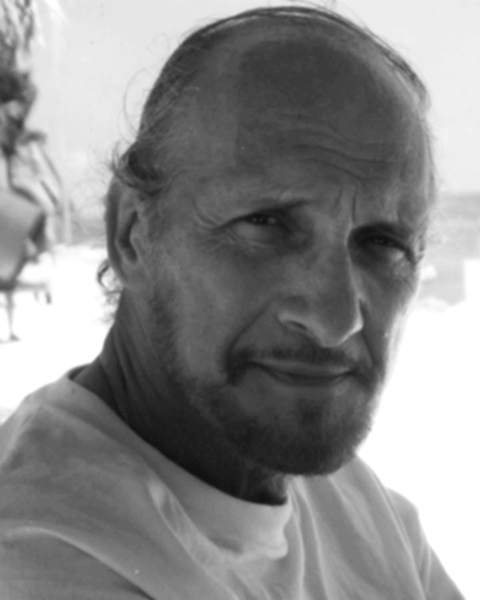Thomas P. Muhl – It Has Not Been Long Enough to Forget

It has been 50 years since Russian tanks crushed the dream of a free Hungary. But it has not been long enough to forget.
I was an artist. My job was to paint larger-than-life portraits of Lenin and Stalin. That wasn’t so bad. In fact, I was almost content with my lot. But then the Russians came back, and I had to paint sores on my wife’s face to keep her from being raped by the soldiers.
It was then I decided to leave Hungary.
That decision has haunted me ever since.
It was 1956. On the streets of Budapest, the euphoria had disappeared with the smoke. Now fresh Russian troops — soldiers of the same army that had saved our lives 12 years earlier — were coming house to house, restoring a brutal order. There was little I could do for myself except pray. But for Letty, my wife, prayer was not enough. With flour and water, and oil paint, I was again a serious artist, hurrying to complete my greatest creative work. Heart pounding, I struggled to steady my hand while transforming the smooth, young face of my wife to a visage ugly enough to repulse the most bestial of men.
And it worked. When the Russian troops burst into Letty’s parents house, they fired a burst of machine-gun fire into the ceiling, then stopped short in front of the sickly looking woman who sat in a dark corner, a babushka around her head.
Nagyon beteg, I said. Very sick.
Shuddering in disgust, the Russians quickly left the house.
And the next day, Letty and I left for Austria.
We had no plan. I knew only if anybody asked we would say we were going to visit relatives. We took a packed train to Szombathely, near the border. But there were rumors on the train that the station there was occupied by Russian troops. We jumped off the train when it slowed on the outskirts of the town. It was dark and we did not know what to do. We decided to play out our charade, walk into town and get a hotel room, pretending we were visiting friends. At 2 a. m. I woke up to the sound of boots stomping down the hallway. I heard a fist slamming on doors, and shouted orders. When they came to our room I was cowering under my sheets. I remember the clear, blue eyes under the cap. “ Where do you think you are going?” he said. I quaked. My throat was dry. “ We are visiting relatives.”
For a moment he looked into my eyes. “ It’s amazing how many people are coming here to visit relatives. Have a good time, see you next year.” And he was gone.
In the morning we got on a train going west. I felt the gaze of a man in a railroad uniform from across the aisle. “ I know what you are up to,” he said. “Maybe I can help.”
He told us that the end of the line was crawling with Russians. We followed him off at the station before the end, and through a tiny village. He took us to the edge of the forest and pointed the way. We must have made the wrong turn. For hours we wandered in the dark, looking for the edge of a swampy field that we were told marked the no-man’s land between us and the Austrian border. We grew tired and panicky. Suddenly the sky was floodlit with phosphorescent flares, and machine-gun fire seemed to surround us. I felt the flash and force of an explosion. Next thing I knew I was on my back in icy water.
“ Come on,” Letty shouted. “Crawl!”
We moved along the edge of the water until we reached a farmhouse. There, while on my hands and knees, I came upon a package of Austrian cigarettes. We walked to the house still shivering with cold and terror, so exhausted we didn’t care if it was Austrian or Hungarian. A man came to the door. “ We haven’t seen any of you lately,” he said.
“How did you make it?” The next morning, Austrian border guards told us they had recovered the bodies of six Hungarians in the swale we had crossed.
We had thought we were alone.
Fifty years ago the author fled the Russian invasion of Hungary, braving minefields and Russian tanks. Today he is a successful artist and writer, living in South Florida, dedicated to depicting the beauty and richness of his tropical environment. He knows that in the mind of the eternal exile, there is a fine line between courage and cowardice.
His book, entitled “ Retouching Stalin’s Moustache” is published in paperback and hardcover, with 366 pages, 10 photos and 9 line drawings. The book includes a more detailed version of his experiences during the 1956 revolution and subsequent escape from Hungary. It’s available at Amazon.com and Barnes & Noble bookstores.




Olga Vallay Szokolay – My October